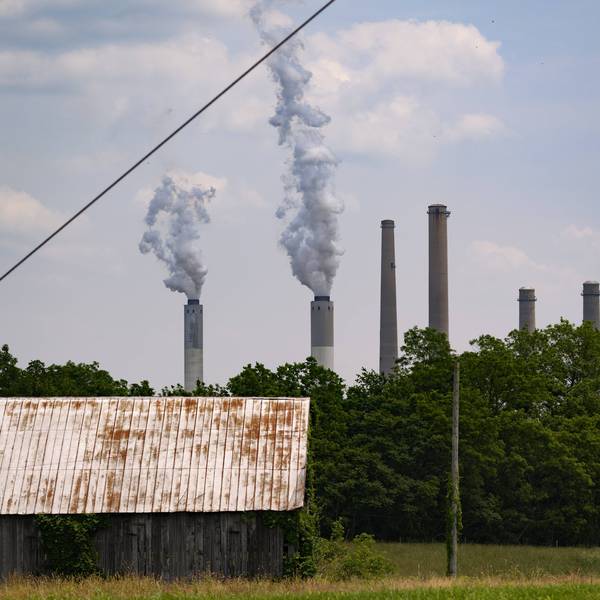President Donald Trump pledged to end the "war on coal" by slashing regulations and putting coal miners "back to work." New research, however delivers a rebuke to the moves, indicating that they're harming the very mining communities he's professing to help--and that Americans in "coal country" are far more willing to adapt to new sources of employment.
"I'm beginning to see some real enthusiasm, particularly among young people in small communities in West Virginia, to begin looking for something beyond coal," said one West Virginian who was interviewed by three researchers at Indiana University for the study.
The team interviewed residents of two coal mining towns in the state in July 2016, as then-candidate Donald Trump was making repeated campaign promises to put coal miners back to work by fighting regulations put in place by the Obama administration.
In their resulting report, to be printed in the March 2018 edition of Energy Research and Social Science, the researchers said they found that the federal government would better serve former coal mining communities by investing in professional development programs, education, and healthcare services rather than pushing for deregulation of the coal industry.
One respondent who participated in the researchers' focus groups said, "Coal is probably not coming back, or if it is, it's not what it once was, so I'm going to learn as [many] new and exciting things as I can. I want to get a degree, so I'm more hire-able later on."
Meanwhile, Trump has heralded his rollback of Obama-era rules that limited pollution from coal-fired power plants, assuring supporters that regulations were the cause of the coal sector's 71 percent employment drop since 1985. The researchers found that as many Trump critics have stressed, it's unlikely "that these policy changes will drastically affect the country's current energy transition."
The loss of coal jobs has resulted far more from greater demand for less expensive, cleaner energy production methods like solar and wind power, than from environmental regulations, the study notes.
While Trump has frequently visited Appalachia to tell citizens he will bring their jobs back and retain the deeply-embedded culture of coal mining that exists in the region, the authors of the study found "substantial evidence that Appalachian coal communities are working to shed the culture of coal and develop new opportunities and an evolving conception of identity based on these opportunities," said researcher Sanya Carley.
"I think longer term, it is an opportunity, despite all the pain that people feel to finally diversify our economy, to be healthier, and diversify how we create energy ourselves, to be a kind of a healthier, more vibrant place," one study respondent said of the shift to new sources of energy.
The authors of the study urge the Trump administration to join former coal towns in finding new opportunities for economic development, education, and professional growth for citizens.




